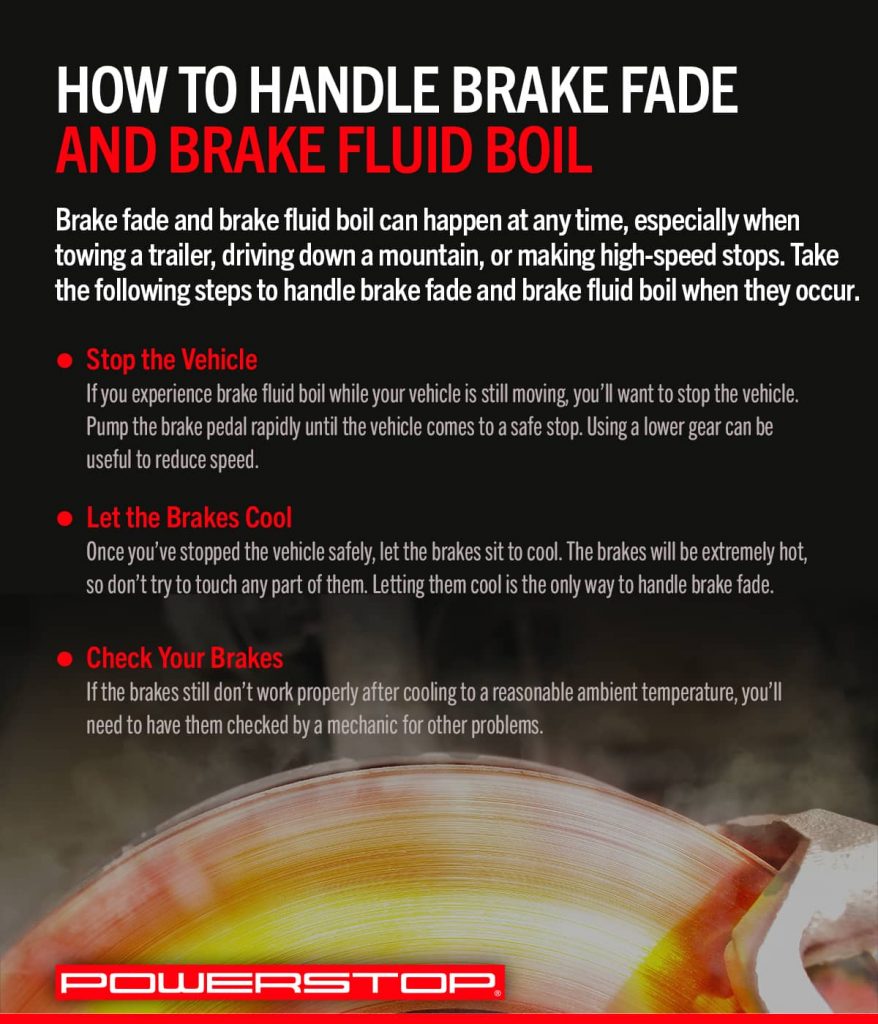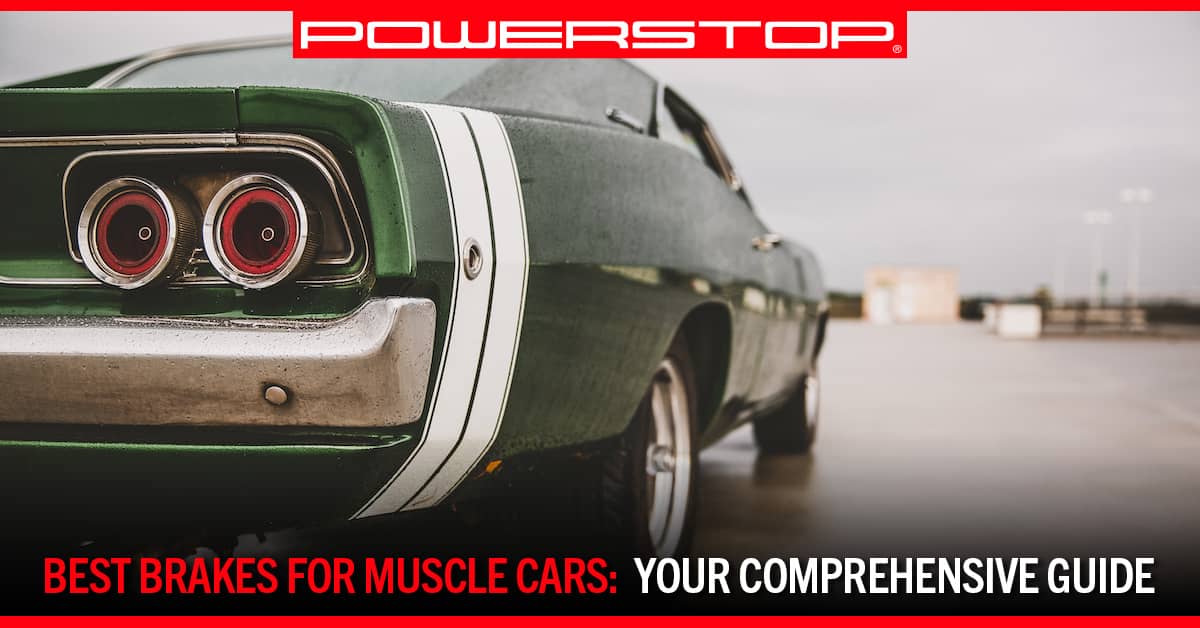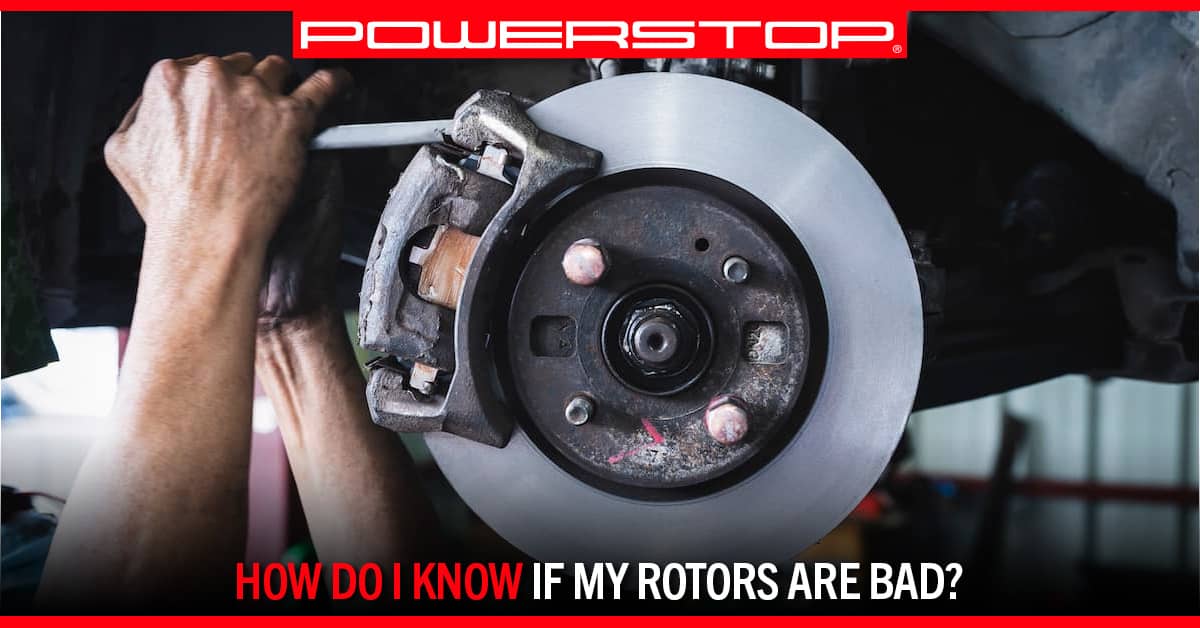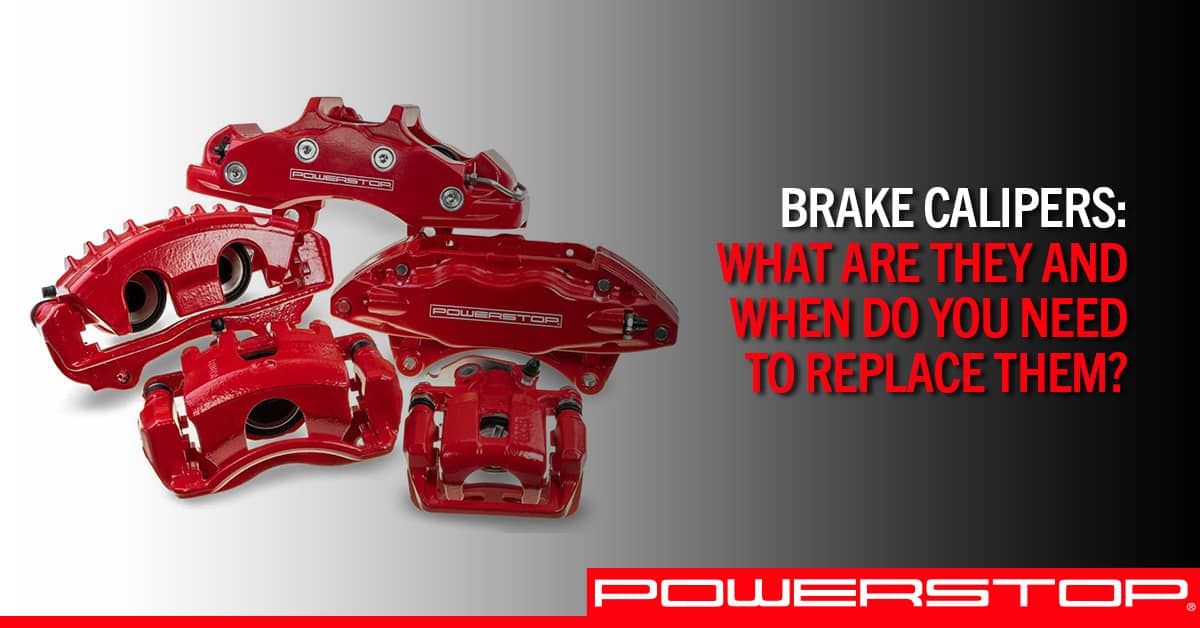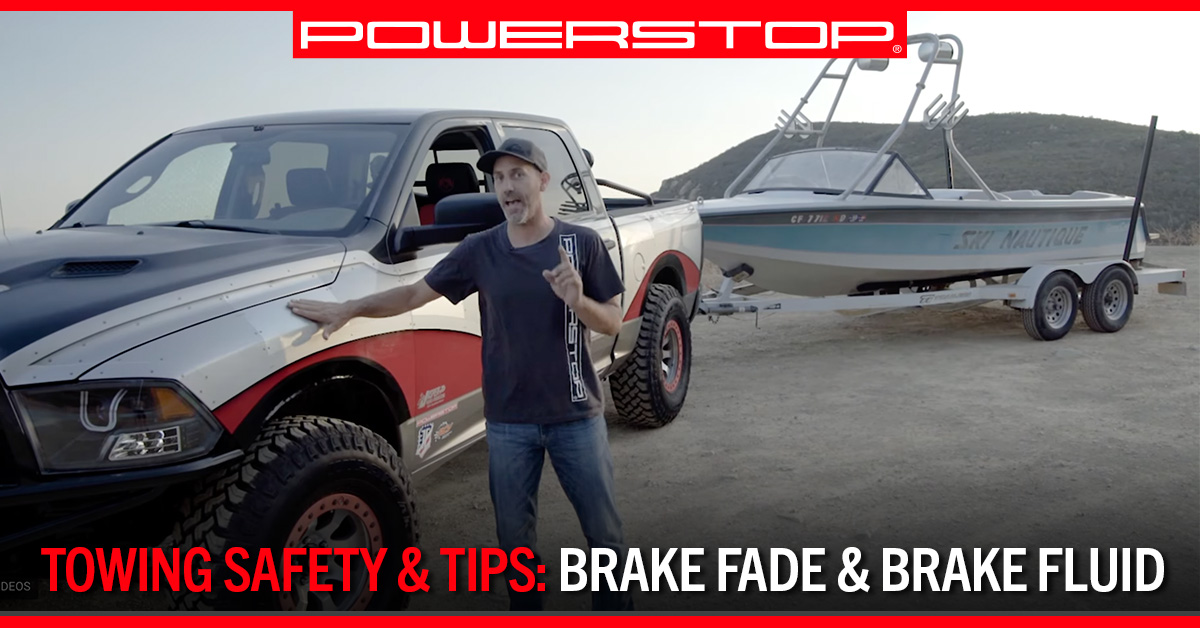
Towing Safety & Tips: Brake Fade and Brake Fluid Boil
Brake Fade and Brake Fluid Boil are serious issues that can reduce your vehicle’s braking performance and put you – and others on the road – in danger. Because of this, it’s important to understand what these conditions are, what causes them, how to handle them if they occur, and how to prevent them from happening in the first place.
What Is Brake Fade?
Brake Fade is the term used to describe when a brake pedal feels firm but the vehicle will not slow down no matter how much pressure is applied. Brake fade occurs when too much heat created by friction prevents brakes from working properly. This is more likely to occur when you have more weight in or attached to your vehicle.
Brakes use both abrasive and adherent friction to stop a vehicle. When brakes are cool, the brake pads use abrasive friction on the brake rotors. Adherent friction comes into play when things heat up. Over time and use, material left over from the brake pads is deposited on the rotors. This material creates a tape-like bond with the pads and rotors to slow down a vehicle.
This extra friction acts like a lubricant when things overheat, preventing the brake pads from effectively grabbing the rotors to slow you down. This can be both alarming and dangerous, especially with the added weight of towing.
There are steps you can take to prevent brake fade. Understanding why you might experience brake fade or poor braking performance is essential to preventing it from happening – or regaining control of your vehicle if it does occur.
There are two main causes of this phenomenon: Brake fluid boil and brake pad fade. Both have different signs and symptoms, so you’ll want to know about both before you set out with your vehicle, especially a truck and trailer.
What Is Brake Fluid Boil?
The symptoms of brake fluid boil are commonly misinterpreted as brake fade. Brake fluid boil makes the brake pedal feel spongy or go straight to the floor when applied, but in cases of true brake fade, the pedal feels normal.
During periods of increased braking, such as mountainous driving, trailer towing, or high-speed stops, heat can be transferred to the brake caliper, dramatically increasing the brake fluid temperature.
Brake fluid naturally attracts and absorbs water. If the fluid has absorbed water, the boiling point is reduced dramatically. Between the dramatic increase in temperature and the lower boiling point, the brake fluid can easily boil. This boiling can create air bubbles in the brake system. Unlike the brake fluid, the air bubbles will easily compress during braking, and when it does, it can cause the brake pedal to go straight to the floor without the vehicle slowing.
Brake fluid boil often happens when towing on mountain descents. If this occurs, downshift and pull over safely so the brakes can cool down. To prevent brake fluid boil in situations such as long mountainous descents, use a lower gear so the transmission and engine drag can slow you down. Be sure to also use proper driving techniques to avoid overusing your brakes.
Understanding Brake Pad Fade
With brake fade, the pedal still feels normal, but the vehicle is not slowing down as you would expect. You’ll typically be able to smell the brake pads overheating, and though the brakes are applied, the vehicle isn’t stopping well.
The friction created by the brake pads and rotors is used to slow the vehicle. This friction tends to increase as the braking temperature increases. However, above certain temperatures, the brake pads begin to break down and gasses can be released. These gasses form a microscopic layer between the pad and rotor, reducing friction. This decrease in braking effectiveness is considered brake fade.
Now, factor in a trailer to the equation. When your vehicle’s brakes are responsible for stopping with more weight, they create more heat, therefore increasing the chance of brake fade.
How To Handle Brake Fade and Brake Fluid Boil
Brake fade and brake fluid boil can happen at any time, especially when towing a trailer, driving down a mountain, or making high-speed stops. Take the following steps to handle brake fade and brake fluid boil when they occur.
- Stop the vehicle: If you experience brake fluid boil while your vehicle is still moving, you’ll want to stop the vehicle. Pump the brake pedal rapidly until the vehicle comes to a safe stop. Using a lower gear can be useful to reduce speed.
- Let the brakes cool: Once you’ve stopped the vehicle safely, let the brakes sit to cool. The brakes will be extremely hot, so don’t try to touch any part of them. Letting them cool is the only way to handle brake fade.
- Check your brakes: If the brakes still are not working properly after they’ve cooled off to a reasonable, ambient temperature, you’ll need to have your brakes checked out by a mechanic for other problems.
How To Prevent Brake Fade and Brake Fluid Boil
In addition to knowing how to handle brake fade and brake fluid boil when they occur, it is also important to know what steps to take to prevent the conditions from occurring.
- Keep your brakes cool: The easiest way to avoid brake fade and brake fluid boil is to prevent your brakes from getting too hot in the first place. When towing, especially downhill, don’t drag the brakes. Firmly applying and releasing the brakes will give them a chance to cool.
- Use a lower gear: Another easy way to save your brakes is to drop your vehicle’s transmission to a lower gear. This will enable the engine to help hold your vehicle back while going down a long, steep hill.
- Maintain fresh brake fluid: Keeping your brake fluid fresh is another important preventative measure. Bleed the brakes fully and replace the fluid when recommended. While many don’t consider changing brake fluid often, manufacturers generally recommend doing a flush every two years.
- Upgrade your brakes: Perhaps the best way to reduce the possibility of brake pad fade is to upgrade your vehicle’s braking system by installing performance brake pads and rotors, such as PowerStop’s Z36 Extreme Truck and Tow brake package. PowerStop’s Drilled & Slotted rotors help cool brake pads by increasing airflow. Carbon fiber ceramic pads can also stand up to increased heat. Better rotors and pads will help your brakes keep up with your truck when it needs to stop.
Though brake fade might be more common during towing, it doesn’t have to be. By keeping up with your truck’s maintenance and braking system, brake fade and brake fluid boil are easily preventable. Towing downhill can be strenuous on your truck’s brakes, but if you’ve properly hooked up your trailer, are towing a reasonable load for your vehicle, and have taken precautions against brake overheating, your truck and trailer should be good to go.
Have a Question? PowerStop Can Help!
PowerStop is dedicated to delivering top-quality performance brakes for every vehicle on the road. If you have a question about any of our products, contact us today online or toll-free at (888) 863-4415. Our customer service team is available to answer your questions Monday through Friday from 8 a.m. to 5 p.m. (CST). Se habla español.
Back

